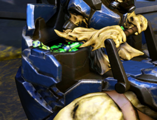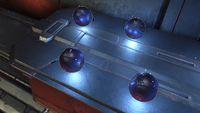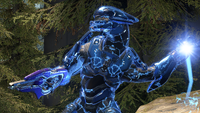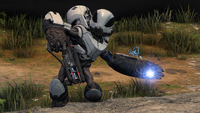Anskum-pattern plasma grenade: Difference between revisions
From Halopedia, the Halo wiki
Cally99117 (talk | contribs) m (→Gallery) |
m (→Trivia) |
||
| (237 intermediate revisions by more than 100 users not shown) | |||
| Line 1: | Line 1: | ||
{{ | {{Status|Canon}} | ||
{{ | {{Title|''Anskum''-pattern plasma grenade}} | ||
{{ | {{Weapon infobox | ||
|name=''Anskum''-pattern Firebomb | |||
|image=[[File: | |image=[[File:H5G-Plasma Grenade.png|300px]] | ||
|manufacturer=[[Iruiru Armory]] | |||
|manufacturer= | |||
|model=Type-1 | |model=Type-1 | ||
|type=Anti-Personnel Grenade | |type=Anti-Personnel Grenade | ||
| | |length-title=Diameter | ||
| | |length= {{Convert|14.8|cm|in}} (Covenant){{Ref/Book|Id=EN306|Enc22|Page=306}}<br>{{Convert|10.7|cm|in}} ([[Banished]]){{Ref/Reuse|EN}} | ||
|weight = {{Convert|2|lb|kg}} | |||
| | |optics= | ||
*Kill Radius: {{Convert|3.96|m|ft}}<ref name=" | |range-title=Damage radius | ||
*Damage Radius: {{Convert|12.9|m|ft}} | |optics= | ||
| | |range= | ||
| | *Kill Radius: {{Convert|3.96|m|ft}}<ref name="ency">'''[[Halo Encyclopedia (2009 edition)]]''', "chapter 11", ''page 332''</ref> | ||
| | *Damage Radius: {{Convert|12.9|m|ft}}{{Ref/Reuse|ency}} | ||
| | |capacity= | ||
|feed = | |||
|ammotype-title=Filling | |||
|ammotype=9.3 oz Latent plasma | |||
|operation=Fused when activated, explodes 3 seconds after hitting a surface. | |operation=Fused when activated, explodes 3 seconds after hitting a surface. | ||
|rate | |rate= | ||
| | |service=[[Human-Covenant War]] <br> [[Great Schism]] <br> [[Post-Covenant War conflicts]] | ||
|affiliation=[[Covenant]] <br> | |||
[[Thel 'Vadam's Covenant faction]] <br> | |||
[[Covenant remnants]]<br> | |||
[[Banished]] | |||
| | |||
}} | }} | ||
{{ | {{Article quote|Plasma Grenades are elegant and deadly explosive devices developed by the Covenant, and now used in large numbers by the Banished and other successor powers. The smart-matter casing allows it to stick to infantry and vehicles, making it extraordinarily deadly in the hands of skilled users. Stuck plasma grenades bypass shields.{{Ref/Game|HI|[[Forge]] - Plasma Grenade description|Quote=Plasma Grenades are elegant are deadly explosive devices developed by the Covenant, and now used in large numbers by the Banished and other successor powers. The smart-matter casing allows it to stick to infantry and vehicles, making it extraordinarily deadly in the hands of skilled users. Stuck plasma grenades bypass shields.}}}} | ||
The '''Type-1 Antipersonnel Grenade''' | The '''''Anskum''-pattern Firebomb'''{{Ref/Book|Id=EN|Enc22|Page=482}} or '''Type-1 Antipersonnel Grenade,''' more commonly known as the '''plasma grenade''', is a thrown [[Covenant]] anti-personnel explosive device.<ref name="ency">'''[[Halo Encyclopedia (2009 edition)]]''', "chapter 11", ''page 332''</ref> It is analogous to [[human]] hand grenades. | ||
==Design | ==Design details== | ||
[[File:ReachSchematic - PG.png|150px|thumb|left|A blueprint of the Plasma Grenade in ''Halo: Reach''.]] | [[File:ReachSchematic - PG.png|150px|thumb|left|A blueprint of the Plasma Grenade in ''Halo: Reach''.]] | ||
The Type-1 Antipersonnel Grenade is a dangerous hand thrown weapon utilized by Covenant forces, typically [[Unggoy]] and [[Sangheili]] soldiers. The | {{Quote|Holy Light!|Anonymous [[Sangheili]]}} | ||
The Type-1 Antipersonnel Grenade is a dangerous hand-thrown weapon utilized by Covenant forces, typically used by [[Unggoy]] and [[Sangheili]] soldiers as both a thrown anti-infantry and anti-vehicle weapon. The grenade is spherical in shape and straightforward in design, with the activation "switch" located on the orange-colored area of the grenade. Above the activation pad is a [[Forerunner]] glyph. The glyphs seen on the plasma grenade are known to change with each new model and are believed to be based upon the time of manufacturing and the Covenant religious rituals.{{Citation needed}} | |||
When primed, the Type-1 plasma grenade | The plasma grenade's casing is made of [[Wikipedia:Programmable matter|smart matter]] programmed to stick to infantry targets. When primed, the Type-1 plasma grenade starts to vent its coolant.<ref>[https://www.halowaypoint.com/en-gb/universe/weapons/plasma-grenade '''Halo Waypoint''': ''Plasma Grenade'']</ref> After the coolant has been discharged, the plasma generator inside destabilizes and the grenade detonates after approximately 3 seconds. The grenade contains some type of internal mechanism that allows it to distinguish between targets and background, it will stick to a soldier or vehicle, but not to a tree or wall.<ref>'''[[Halo: Combat Evolved]]''', ''Game Manual'', ''page 21''</ref> Post-war study and analysis have discovered that the grenade relies on heat signatures to distinguish targets.<ref name="Waypoint">[http://www.halowaypoint.com/en-US/Halo4Guide '''Halo Waypoint:''' ''Halo 4 Interactive Guide'']</ref> Once something has been stuck with a grenade, there is no normal way to remove it, only devices like an advanced [[Armor Lock|electromagnetic shield]] can temporary disable the internal mechanism. However, this technology is rare and only issued to special forces of both the UNSC and Covenant. Detonation is first visible as a flash of white-blue light, and the kill zone area is instantly subjected to extreme temperatures; whatever is in the ground zero area, be it natural or otherwise, is instantly vaporized. Because there is no magnetic field to contain the plasma, it begins to cool very quickly - thermal expansion begins to take over and the resulting heat fans outward and upward, continuing to burn areas up to forty feet away until the resulting flames have cooled to the point where it cannot continue to expand. After the initial explosion, the kill radius area becomes charged with negative and positive particles which will form electrical currents visible for a short period after the explosion. | ||
The sheer destructive power the plasma grenade deals to any living creature within its vicinity is extreme; when a plasma grenade detonates on, or near a target it is subjected to extreme temperatures, killing anything within a 13 feet radius instantly<ref>'''[[Halo: Ghosts of Onyx]]''' | The sheer destructive power the plasma grenade deals to any living creature within its vicinity is extreme; when a plasma grenade detonates on, or near a target it is subjected to extreme temperatures, killing anything within a 13-feet radius instantly;<ref>'''[[Halo: Ghosts of Onyx]]''', "chapter 39", ''page 359''</ref> damage to the body is extreme, as the heat flash vaporizes the bodies internal fluids and burns flesh and bone to an unrecognizable charred state. The concussion wave released by the grenade will also cause additional damage to anything within the kill radius. Any living being outside of the kill zone may sustain heat damage as well, as non-heat resistant clothing or flammable material may be ignited by the heat released from a detonating plasma grenade. The concussive force released by the grenade can also harm or disorient anything just outside the kill radius and can also be affected by the flames released from the grenade - a person can also receive injuries from objects being ejected out of the kill zone at high speeds as a result of a plasma grenade detonating. | ||
===Advantages=== | ===Advantages=== | ||
The ability of the | The ability of the T-1 plasma grenade to stick to its target is extremely useful when encountering moving targets that could easily evade other explosive devices. This adhesive property allows the plasma grenade to function as both an anti-infantry and anti-vehicle weapon, where a stuck grenade can take down light vehicles and cause moderate damage to heavier ones. The explosive damage the plasma grenade releases is also effective at destroying objects not sensitive to the heat released by one, and can also serve as an effective support weapon as well. Plasma grenades are also effective at disrupting electronics and shielding when they detonate.<ref>'''[[Halo: First Strike]]''', "chapter 7", ''page 69''</ref> The plasma grenade is known to be used by the lesser races of the Covenant as an effective [[Suicide attack|suicidal weapon]], a tactic most commonly used by mortally wounded or psychologically unstable Unggoy who will attach primed grenades to their bodies before hurling themselves at their enemies. Against [[UNSC]] forces the plasma grenade is an effective psychological weapon due to the various consequences the grenade brings to anyone in its path. Its destructive properties can also leave terrible psychological effects on a person who has witnessed one detonate on a fellow soldier and seeing the destructive damage it has done.<ref>'''[[Halo: The Flood]]''', "chapter 2", ''page 67''</ref> | ||
===Disadvantages=== | ===Disadvantages=== | ||
The | The plasma grenade has a three-second fuse that the human equivalent lacks. Therefore, if the plasma grenade does not stick it to the target, the target will have ample time to evade the explosion. Sticking a plasma grenade to enemy infantry can be a gamble, as the target stuck with the grenade will have three seconds to chase down the opposite opponent and kill them as well. | ||
== | ==Gameplay changes== | ||
===Changes between ''Halo: Combat Evolved'' and ''Halo 2''=== | |||
*The color of the grenade itself changed from a light blue to a dark blue. | *The color of the grenade itself changed from a light blue to a dark blue. | ||
*The explosive effects of the grenade | *The explosive effects of the grenade are more detailed. | ||
*The explosion sound effect for the grenade is different and now has more of a subtle hint of a natural explosion. | *The explosion sound effect for the grenade is different and now has more of a subtle hint of a natural explosion. | ||
*The Forerunner glyph on the grenade is different | *The Forerunner glyph on the grenade is different. | ||
*The | *The grenade's fuse timer has been reduced (4 seconds to 2 seconds). | ||
===Changes between Halo 2 and Halo 3 and Halo 3: ODST=== | ===Changes between ''Halo 2'' and ''Halo 3'' and ''Halo 3: ODST''=== | ||
*The color of the gas and explosion are now dark blue and the grenade's explosive effect is much brighter and more detailed. | *The color of the gas and explosion are now dark blue and the grenade's explosive effect is much brighter and more detailed. | ||
*The model for the plasma grenade is now much more detailed the Forerunner glyph is | *The model for the plasma grenade is now much more detailed and the Forerunner glyph is different. | ||
*The grenade now emits a high pitched noise when | *The grenade now emits a high pitched noise when sticking and preparing to detonate. | ||
* | *Will sometimes stick to a wall. | ||
*The fuse timer has been reduced by about one second. | |||
===Changes between ''Halo 3'', ''Halo 3: ODST'' and ''Halo: Reach''=== | |||
*The holographic Forerunner glyph on the casing is different. | |||
*The grenade is more detailed, featuring four triangular red "buttons". | |||
*The Plasma grenade, like most Covenant weapons in Halo: Reach, now has a scale pattern on it. | |||
===Changes between ''Halo: Reach'' and ''Halo 4''=== | |||
*The blast radius is now smaller, making it harder to get a kill when the grenade doesn't stick an enemy. | |||
*The color of the grenade has been changed to a dark purple, while the lights are a bright green. | |||
*The grenade has a simpler design, with the Covenant glyphs noticeably absent. | |||
== | ===Changes between ''Halo 4'' and ''Halo 5: Guardians''=== | ||
*The lights on the grenade are now blue instead of green. | |||
*The fuse is slightly longer. | |||
*Although the blast radius remains small, a blinding effect is inflicted on players at the edge of the explosion. | |||
* | *Dropped plasma grenades laying on the ground will explode when shot. | ||
* | |||
* | |||
* | |||
=== | ===Changes between ''Halo Wars'' and ''Halo Wars 2''=== | ||
*The Plasma Grenade | *The Plasma Grenade emit red colors. | ||
* | *The Plasma Grenade deals less damage. | ||
* | ===Changes between ''Halo 5: Guardians'' and ''Halo Infinite''=== | ||
*The explosion of the Plasma Grenade leaves behind "splatters" of blue plasma residue. | |||
{{Expand-section}} | |||
==Trivia== | ==Trivia== | ||
{{Linkbox|gameplay=yes|gallery=yes|gallerypage=Images of Plasma Grenade}} | |||
*It is difficult but possible to stick another grenade while it is in the air, effectively stopping and detonating both. | *It is difficult but possible to stick another grenade while it is in the air, effectively stopping and detonating both. | ||
* | *Although they do not stick to regular surfaces, Plasma Grenades will appear to sink into the ground after bouncing off of a surface. | ||
*In the ''Halo 2'' video "[[Another Day at the Beach]]", [[ | *In ''Halo: Combat Evolved'', the plasma grenade has the same throwing noise as the UNSC frag grenade. | ||
*It is possible to create a makeshift grenade launcher in ''Halo: | *In the ''Halo 2'' video "[[Another Day at the Beach]]", [[Private]] [[Walpole]] is stuck with a Plasma Grenade on his ODST helmet, but saves himself by throwing away the helmet. | ||
* | *It is possible to create a makeshift grenade launcher in ''Halo: Combat Evolved'' using two Plasma Grenades. To do this, one should throw a Plasma Grenade at the ground from a safe distance. When it hits the ground, wait a few seconds and then throw the other Plasma Grenade in front of it. If timed right, the blast from the first grenade will launch the other grenade across the map. | ||
* | *If one sticks an overshielded player with a Plasma Grenade and kills them, one will not receive a stick medal. However, using a Spike Grenade will do so. | ||
*In ''[[Halo 3]]'', ''[[Halo 3: ODST]]'', ''[[Halo: Reach]]'', ''[[Halo 4]]'', ''[[Halo 5: Guardians]]'', and ''[[Halo Infinite]]'', Unggoy will sometimes arm two Plasma Grenades and run towards the player, becoming suicide bombers. This feature is prominent on the level ''[[Exodus]]'' in ''Halo: Reach''. | |||
*Like the [[Orgudam Workshop firebomb]] grenade and [[Spike Grenade]], if a [[Flood Carrier Form]] is stuck by a Plasma Grenade, it will not release any Infection forms. | |||
*''Halo: Reach'' and ''Halo: Combat Evolved '' are so far the only games in which the player can stick themselves with a plasma grenade by throwing the grenade directly at their foot. | |||
*In the game ''Killer Instinct'', the Plasma Grenades used by Arbiter take the same time to explode as in ''Halo: Combat Evolved'', and the Arbiter often calls them "Cleansing Flame". | |||
*In ''Halo: Reach'' and ''Halo 5: Guardians'', plasma grenades that have been dropped will detonate instantly if shot with a precision weapon such as the magnum. | |||
==Gallery== | ==Gallery== | ||
<gallery | <gallery> | ||
File:Plasma grenade study.jpg|A study of the Plasma Grenade. | File:HCE Plasma nade on the ground.png|The Plasma Grenade in ''Halo: Combat Evolved''. | ||
File:Plas gren primed.jpg|A study of the Plasma Grenade when primed. | File:HaloCE-PlasmaGrenade.png|A Plasma Grenade in ''Halo: Combat Evolved''. | ||
File:Explosion study.jpg|Various stages of a Plasma Grenade exploding. | File:Catch.jpg|A Sangheili throws a Plasma Grenade at oncoming [[Flood]] in ''Halo: Combat Evolved''. | ||
File: | File:H2-PlasmaGrenade.png|An in-game view of the Plasma Grenade in ''Halo 2''. | ||
File: | File:H3-PlasmaGrenade.png|An angled view of the Plasma Grenade in ''Halo 3''. | ||
File: | File:H3-PlasmaGrenade02.png|Another angled view of the Plasma Grenade in ''Halo 3''. | ||
File: | File:PlasGren.png|A front view of the Plasma Grenade in ''Halo 3''. | ||
File:H3 Suicide Grunt Minor.png|A Suicide Grunt charging at his foes in ''Halo 3''. | |||
File:Plasma grenade study.jpg|A study of the Plasma Grenade in ''Halo 3''. | |||
File:Plas gren primed.jpg|A study of the Plasma Grenade when primed in ''Halo 3''. | |||
File:Explosion study.jpg|Various stages of a Plasma Grenade exploding in ''Halo 3''. | |||
File:HaloReach - Plasma Grenade.png|The Plasma Grenade in the ''Halo: Reach Multiplayer Beta''. | |||
File:HReach-PlasmaGrenade.png|An angled view of the Plasma Grenade in ''Halo: Reach''. | |||
File:Reach T1 Plas Grenade.png|Front view of the Plasma Grenade's arming mechanism in ''Halo: Reach''. | |||
File:HReach-PlasmaGrenade-Front.png|Alternate front view of the Plasma Grenade in ''Halo: Reach''. | |||
File:HR-T1APG-PlasmaGrenade-RefChart.jpg|Reference chart of the Plasma Grenade in ''Halo: Reach''. | |||
File:H4PlasmaGrenade.png|The Plasma Grenade in ''Halo 4''. | |||
File:H4-PlasmaGrenades.png|2 Plasma Grenades in ''Halo 4''. | |||
File:PlasmaGrenade-HUD.png|HUD Icon of the Plasma Grenade in ''Halo 4''. | |||
File:H4-SIVwithSticky.jpg|A [[STRIDER-class Mjolnir|Strider]]-clad Spartan-IV throwing a plasma grenade in ''Halo 4''. | |||
File:H4-PlasmaGrenadeDetonation.jpg|A plasma grenade explosion in ''Halo 4''. | |||
File:H2A - Plasma grenades render.jpg|Renders of the plasma grenade for ''[[Halo 2: Anniversary]]''. | |||
File:H2A Render PlasmaGrenade.png|A render of the plasma grenade in ''Halo 2: Anniversary''. | |||
File:H5G-Sticky.png|A render of a plasma grenade in ''Halo 5: Guardians''. | |||
File:H5G-PlasmaGrenade.jpg|An [[EOD-class Mjolnir|EOD]]-clad Spartan-IV throws a plasma grenade in ''Halo 5: Guardians''. | |||
File:HINF_XGS2020_Plasma_Grunt.png|An Unggoy flying through the sky holding two plasma grenades as seen in the [[Halo Infinite Campaign Gameplay Trailer]]. | |||
File:HW2 Yapyap Plasma Grenade.png|A unique Plasma Grenade used by Grunt Riders.<ref name="PLH">'''Halo Wars 2''': [[Phoenix Logs#Banished Units|Phoenix Logs - Grunt Riders]]</ref> | |||
File:HW2 Grunt Rider Grenades.png|A closer look of the Grunt Riders' Plasma Grenade. | |||
File:HINF plasma grenades.png|A collection of Banished plasma grenades. | |||
File:HINF Sangheili Mercenary plasma grenade.png|A Sangheili mercenary getting ready to throw a plasma grenade. | |||
File:HINF Banished Unggoy Ultra plasma grenade.png|A Banished Unggoy Ultra prepares to throw a plasma grenade. | |||
File:HTV-Halo-Sticky.png|[[John-117/Silver|John-117]] sticking a Sangheili with a plasma grenade in ''[[Halo: The Television Series Season Two]]''. | |||
</gallery> | </gallery> | ||
==List of appearances== | |||
{{Col-begin}} | |||
{{Col-2}} | |||
*''[[Halo: The Fall of Reach]]'' {{1st}} | |||
*''[[Halo: Combat Evolved]]'' | |||
*''[[Halo: The Flood]]'' | |||
*''[[Halo: First Strike]]'' | |||
*''[[Halo 2]]'' | |||
*''[[Halo Graphic Novel]]'' | |||
**''[[The Last Voyage of the Infinite Succor]]'' | |||
*''[[Halo: Ghosts of Onyx]]'' | |||
*''[[Halo: Uprising]]'' | |||
*''[[Halo 3]]'' | |||
*''[[Halo: Contact Harvest]]'' | |||
*''[[Halo Wars]]'' | |||
*''[[Halo: Helljumper]]'' | |||
*''[[Halo 3: ODST]]'' | |||
*''[[Halo Legends]]'' | |||
**''[[Prototype]]'' | |||
**''[[The Package (animated short)|The Package]]'' | |||
**''[[Homecoming]]'' | |||
*''[[Halo: Evolutions - Essential Tales of the Halo Universe]]'' | |||
**''[[Headhunters (short story)|Headhunters]]'' | |||
**''[[Midnight in the Heart of Midlothian]]'' | |||
*''[[Halo: Reach]]'' | |||
*''[[Halo: Combat Evolved Anniversary]]'' | |||
*''[[Halo 4: Forward Unto Dawn]]'' | |||
{{Col-2}} | |||
*''[[Halo 4]]'' | |||
**''[[Spartan Ops]]'' | |||
*''[[Halo: Spartan Assault]]'' | |||
*''[[Halo: Escalation]]'' | |||
*''[[Halo: Broken Circle]]'' | |||
*''[[Halo 2: Anniversary]]'' | |||
*''[[Hunt the Truth]]'' | |||
*''[[Halo: Spartan Strike]]'' | |||
*''[[Halo 5: Guardians]]'' | |||
*''[[Halo: Shadow of Intent]]'' | |||
*''[[Halo: Ground Command]]'' | |||
*''[[Halo Wars 2]]'' | |||
*''[[Halo: Envoy]]'' | |||
*''[[Halo: Legacy of Onyx]]'' | |||
*''[[Halo: Bad Blood]]'' | |||
*''[[Halo: Fireteam Raven]]'' | |||
*''[[Halo: Silent Storm]]'' | |||
*''[[Halo: Battle Born]]'' | |||
*''[[Halo Infinite]]'' | |||
*''[[Halo: The Television Series Season One]]'' | |||
**''[[Inheritance]]'' | |||
**''[[Transcendence]]'' | |||
*''[[Halo: The Rubicon Protocol]]'' | |||
*''[[Halo: The Television Series Season Two]]'' | |||
**''[[Halo (TV Series)|Halo]]'' | |||
{{Col-end}} | |||
==Sources== | ==Sources== | ||
{{Ref/Sources}} | |||
{{ | |||
{{Covenant ordnance}} | |||
[[Category:Covenant infantry weapons]] | |||
[[Category:Covenant | [[Category:Grenades]] | ||
[[Category:Infantry plasma weapons]] | |||
[[Category: | |||
[[Category: | |||
Latest revision as of 16:36, September 14, 2024
| Anskum-pattern Firebomb | |
|---|---|
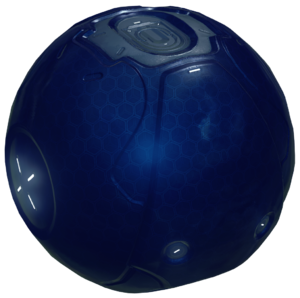
| |
| Production overview | |
|
Manufacturer: |
|
|
Type: |
Anti-Personnel Grenade |
| Specifications | |
|
Diameter: |
14.8 centimetres (5.8 in) (Covenant)[1] |
|
Weight: |
2 pounds (0.91 kg) |
|
Filling: |
9.3 oz Latent plasma |
|
Fused when activated, explodes 3 seconds after hitting a surface. | |
|
Damage radius: |
|
| Service history | |
|
In service: |
|
| “ | Plasma Grenades are elegant and deadly explosive devices developed by the Covenant, and now used in large numbers by the Banished and other successor powers. The smart-matter casing allows it to stick to infantry and vehicles, making it extraordinarily deadly in the hands of skilled users. Stuck plasma grenades bypass shields.[4] | ” |
The Anskum-pattern Firebomb[2] or Type-1 Antipersonnel Grenade, more commonly known as the plasma grenade, is a thrown Covenant anti-personnel explosive device.[3] It is analogous to human hand grenades.
Design details[edit]
- "Holy Light!"
- — Anonymous Sangheili
The Type-1 Antipersonnel Grenade is a dangerous hand-thrown weapon utilized by Covenant forces, typically used by Unggoy and Sangheili soldiers as both a thrown anti-infantry and anti-vehicle weapon. The grenade is spherical in shape and straightforward in design, with the activation "switch" located on the orange-colored area of the grenade. Above the activation pad is a Forerunner glyph. The glyphs seen on the plasma grenade are known to change with each new model and are believed to be based upon the time of manufacturing and the Covenant religious rituals.[citation needed]
The plasma grenade's casing is made of smart matter programmed to stick to infantry targets. When primed, the Type-1 plasma grenade starts to vent its coolant.[5] After the coolant has been discharged, the plasma generator inside destabilizes and the grenade detonates after approximately 3 seconds. The grenade contains some type of internal mechanism that allows it to distinguish between targets and background, it will stick to a soldier or vehicle, but not to a tree or wall.[6] Post-war study and analysis have discovered that the grenade relies on heat signatures to distinguish targets.[7] Once something has been stuck with a grenade, there is no normal way to remove it, only devices like an advanced electromagnetic shield can temporary disable the internal mechanism. However, this technology is rare and only issued to special forces of both the UNSC and Covenant. Detonation is first visible as a flash of white-blue light, and the kill zone area is instantly subjected to extreme temperatures; whatever is in the ground zero area, be it natural or otherwise, is instantly vaporized. Because there is no magnetic field to contain the plasma, it begins to cool very quickly - thermal expansion begins to take over and the resulting heat fans outward and upward, continuing to burn areas up to forty feet away until the resulting flames have cooled to the point where it cannot continue to expand. After the initial explosion, the kill radius area becomes charged with negative and positive particles which will form electrical currents visible for a short period after the explosion.
The sheer destructive power the plasma grenade deals to any living creature within its vicinity is extreme; when a plasma grenade detonates on, or near a target it is subjected to extreme temperatures, killing anything within a 13-feet radius instantly;[8] damage to the body is extreme, as the heat flash vaporizes the bodies internal fluids and burns flesh and bone to an unrecognizable charred state. The concussion wave released by the grenade will also cause additional damage to anything within the kill radius. Any living being outside of the kill zone may sustain heat damage as well, as non-heat resistant clothing or flammable material may be ignited by the heat released from a detonating plasma grenade. The concussive force released by the grenade can also harm or disorient anything just outside the kill radius and can also be affected by the flames released from the grenade - a person can also receive injuries from objects being ejected out of the kill zone at high speeds as a result of a plasma grenade detonating.
Advantages[edit]
The ability of the T-1 plasma grenade to stick to its target is extremely useful when encountering moving targets that could easily evade other explosive devices. This adhesive property allows the plasma grenade to function as both an anti-infantry and anti-vehicle weapon, where a stuck grenade can take down light vehicles and cause moderate damage to heavier ones. The explosive damage the plasma grenade releases is also effective at destroying objects not sensitive to the heat released by one, and can also serve as an effective support weapon as well. Plasma grenades are also effective at disrupting electronics and shielding when they detonate.[9] The plasma grenade is known to be used by the lesser races of the Covenant as an effective suicidal weapon, a tactic most commonly used by mortally wounded or psychologically unstable Unggoy who will attach primed grenades to their bodies before hurling themselves at their enemies. Against UNSC forces the plasma grenade is an effective psychological weapon due to the various consequences the grenade brings to anyone in its path. Its destructive properties can also leave terrible psychological effects on a person who has witnessed one detonate on a fellow soldier and seeing the destructive damage it has done.[10]
Disadvantages[edit]
The plasma grenade has a three-second fuse that the human equivalent lacks. Therefore, if the plasma grenade does not stick it to the target, the target will have ample time to evade the explosion. Sticking a plasma grenade to enemy infantry can be a gamble, as the target stuck with the grenade will have three seconds to chase down the opposite opponent and kill them as well.
Gameplay changes[edit]
Changes between Halo: Combat Evolved and Halo 2[edit]
- The color of the grenade itself changed from a light blue to a dark blue.
- The explosive effects of the grenade are more detailed.
- The explosion sound effect for the grenade is different and now has more of a subtle hint of a natural explosion.
- The Forerunner glyph on the grenade is different.
- The grenade's fuse timer has been reduced (4 seconds to 2 seconds).
Changes between Halo 2 and Halo 3 and Halo 3: ODST[edit]
- The color of the gas and explosion are now dark blue and the grenade's explosive effect is much brighter and more detailed.
- The model for the plasma grenade is now much more detailed and the Forerunner glyph is different.
- The grenade now emits a high pitched noise when sticking and preparing to detonate.
- Will sometimes stick to a wall.
- The fuse timer has been reduced by about one second.
Changes between Halo 3, Halo 3: ODST and Halo: Reach[edit]
- The holographic Forerunner glyph on the casing is different.
- The grenade is more detailed, featuring four triangular red "buttons".
- The Plasma grenade, like most Covenant weapons in Halo: Reach, now has a scale pattern on it.
Changes between Halo: Reach and Halo 4[edit]
- The blast radius is now smaller, making it harder to get a kill when the grenade doesn't stick an enemy.
- The color of the grenade has been changed to a dark purple, while the lights are a bright green.
- The grenade has a simpler design, with the Covenant glyphs noticeably absent.
Changes between Halo 4 and Halo 5: Guardians[edit]
- The lights on the grenade are now blue instead of green.
- The fuse is slightly longer.
- Although the blast radius remains small, a blinding effect is inflicted on players at the edge of the explosion.
- Dropped plasma grenades laying on the ground will explode when shot.
Changes between Halo Wars and Halo Wars 2[edit]
- The Plasma Grenade emit red colors.
- The Plasma Grenade deals less damage.
Changes between Halo 5: Guardians and Halo Infinite[edit]
- The explosion of the Plasma Grenade leaves behind "splatters" of blue plasma residue.
 This section needs expansion. You can help Halopedia by expanding it.
This section needs expansion. You can help Halopedia by expanding it.
Trivia[edit]

|
See our gameplay information related to Anskum-pattern plasma grenade on its gameplay page. |

|
Browse more images in this article's gallery page. |
- It is difficult but possible to stick another grenade while it is in the air, effectively stopping and detonating both.
- Although they do not stick to regular surfaces, Plasma Grenades will appear to sink into the ground after bouncing off of a surface.
- In Halo: Combat Evolved, the plasma grenade has the same throwing noise as the UNSC frag grenade.
- In the Halo 2 video "Another Day at the Beach", Private Walpole is stuck with a Plasma Grenade on his ODST helmet, but saves himself by throwing away the helmet.
- It is possible to create a makeshift grenade launcher in Halo: Combat Evolved using two Plasma Grenades. To do this, one should throw a Plasma Grenade at the ground from a safe distance. When it hits the ground, wait a few seconds and then throw the other Plasma Grenade in front of it. If timed right, the blast from the first grenade will launch the other grenade across the map.
- If one sticks an overshielded player with a Plasma Grenade and kills them, one will not receive a stick medal. However, using a Spike Grenade will do so.
- In Halo 3, Halo 3: ODST, Halo: Reach, Halo 4, Halo 5: Guardians, and Halo Infinite, Unggoy will sometimes arm two Plasma Grenades and run towards the player, becoming suicide bombers. This feature is prominent on the level Exodus in Halo: Reach.
- Like the Orgudam Workshop firebomb grenade and Spike Grenade, if a Flood Carrier Form is stuck by a Plasma Grenade, it will not release any Infection forms.
- Halo: Reach and Halo: Combat Evolved are so far the only games in which the player can stick themselves with a plasma grenade by throwing the grenade directly at their foot.
- In the game Killer Instinct, the Plasma Grenades used by Arbiter take the same time to explode as in Halo: Combat Evolved, and the Arbiter often calls them "Cleansing Flame".
- In Halo: Reach and Halo 5: Guardians, plasma grenades that have been dropped will detonate instantly if shot with a precision weapon such as the magnum.
Gallery[edit]
A Sangheili throws a Plasma Grenade at oncoming Flood in Halo: Combat Evolved.
A Strider-clad Spartan-IV throwing a plasma grenade in Halo 4.
Renders of the plasma grenade for Halo 2: Anniversary.
An EOD-clad Spartan-IV throws a plasma grenade in Halo 5: Guardians.
An Unggoy flying through the sky holding two plasma grenades as seen in the Halo Infinite Campaign Gameplay Trailer.
A unique Plasma Grenade used by Grunt Riders.[11]
John-117 sticking a Sangheili with a plasma grenade in Halo: The Television Series Season Two.
List of appearances[edit]
Sources[edit]
- ^ Halo Encyclopedia (2022 edition), page 306
- ^ a b Halo Encyclopedia (2022 edition), page 482
- ^ a b c Halo Encyclopedia (2009 edition), "chapter 11", page 332
- ^ Halo Infinite, Forge - Plasma Grenade description: "Plasma Grenades are elegant are deadly explosive devices developed by the Covenant, and now used in large numbers by the Banished and other successor powers. The smart-matter casing allows it to stick to infantry and vehicles, making it extraordinarily deadly in the hands of skilled users. Stuck plasma grenades bypass shields."
- ^ Halo Waypoint: Plasma Grenade
- ^ Halo: Combat Evolved, Game Manual, page 21
- ^ Halo Waypoint: Halo 4 Interactive Guide
- ^ Halo: Ghosts of Onyx, "chapter 39", page 359
- ^ Halo: First Strike, "chapter 7", page 69
- ^ Halo: The Flood, "chapter 2", page 67
- ^ Halo Wars 2: Phoenix Logs - Grunt Riders
| ||||||||||||||||||||

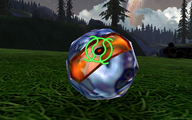
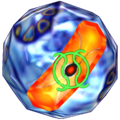
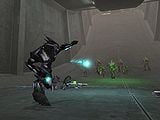
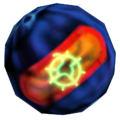
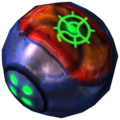
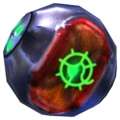
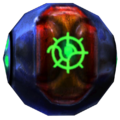
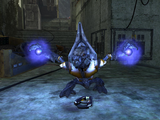
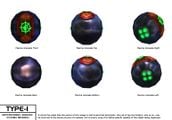
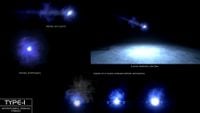
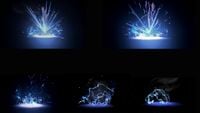
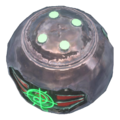
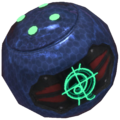
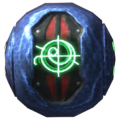
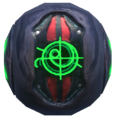
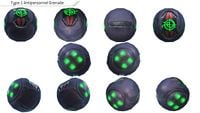
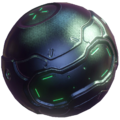
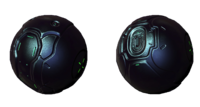


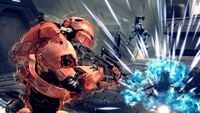

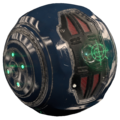
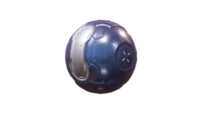
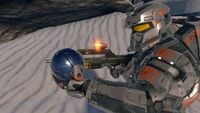
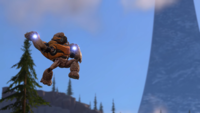
![A unique Plasma Grenade used by Grunt Riders.[11]](https://halo.wiki.gallery/images/thumb/2/23/HW2_Yapyap_Plasma_Grenade.png/200px-HW2_Yapyap_Plasma_Grenade.png)
